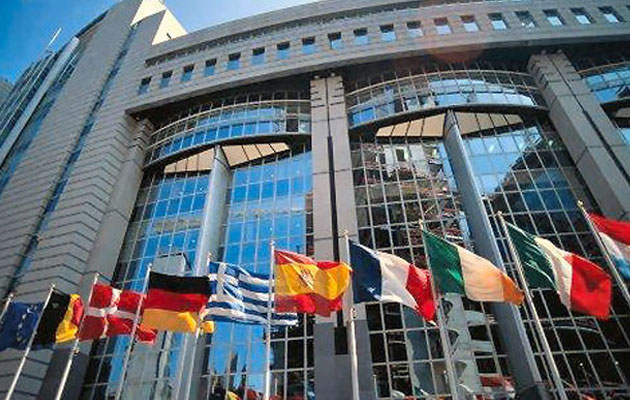Europe has been characterized as the epitome of prosperity, with generous and quality social services, strong industries and overall economic stability. However, the Eurozone is currently facing an unprecedented sovereign debt crisis, which threatens not only the individual economies, but also the very existence of the union itself.
THE ROOTS of the European Union (EU) can be traced back to the European Economic Community formed in 1958, then with only six countries: Belgium, Luxembourg, France, (West) Germany, Italy and the Netherlands. Today, the EU has 27 member states, with Bulgaria and Romania being the latest members and Turkey making overtures to join for the longest time.
It was in 1999 that the euro (EUR) was adopted as the official, sinwwgle currency of the Eurozone, integrating 17 member countries of the EU into a single market under the monetary supervision of the European Central Bank (ECB). The establishment of the currency was part of the efforts to bolster Europe’s economic development and solidarity.
Binding most of the countries of the EU into a single economic entity, however, posed a lot of problems and challenges in the long run. And while the origins of the current Eurozone debt crisis can be linked to the recession of 2008, the current difficulties also have origins in the very nature of the union.
It has become clear that a single currency for the Eurozone did not translate to equality in individual economic capabilities. Anastacio Panahon of the European Studies Program explains, “There are some criteria before a country is admitted to the Eurozone. Unfortunately, most countries only pay lip-service to these rules.”
PIIGS
Countries that became part of the Eurozone still retained control of their individual bond markets. In the free market system, these bonds are essentially tools sold by governments to banks when governments want money to spend (or more accurately, borrow). When the governments pay the banks back and find that they are short on cash, they simply print more money.
Being part of the Eurozone, Greece is incapable of doing this, sincethe country does not have its own money. Instead, banks merely transfer the country’s immense debts to Germany or any other “richer” EU country, with the “richer” countries effectively taking responsibility for paying the debt. With this system, Greece was able to borrow a lot of money and spend beyond its means.
A 2004 BBC story headlines, “Greek debt spirals after Olympics.” The 2004 Olympics, with a cost of more than EUR11 billion, probably constitutes one of the bigger chunks of the debt, but other policies of the Greek government, such as increased social spending, high public sector salaries, and debts that were concealed from the budget records (i.e., corruption) have all pushed Greece to peril. Back then, Greek debt spiraled to EUR184 billion, or 112% of the 2004 Greek GDP. Today, Greece’s debt amounts to EUR340 billion.
Unfortunately, Greece is merely the tip of the iceberg. Panahon makes a reference to the so-called “PIIGS”: Portugal, Ireland, Italy, Greece and Spain. “[At first,] some of these countries are performing quite well, with high growth rates, such as Ireland and Spain,” he says.“ [But] I could already sense before that a crisis was imminent, especially if you just keep borrowing and borrowing and you are not doing any improvement in your productivity.”
These countries fueled their rapidly rising wages and social benefits with debt. However, when the crisis struck, they found their economies uncompetitive, and were thus unable to pay their dues.
One problem, no solution
Then came the bailouts. In May 2010, the EU gave Greece EUR110 billion, and then another EUR109 billion in July 2011—not to mention negotiations with banks that effectively forgave 50% of Greece’s debt. Instead of helping solve the crisis, though, Portugal and Ireland also asked for a bailout to cover their debts.
In exchange for a bailout and with no central bank of their own to print money, all these countries could do is raise taxes and cut spending by a lot—yet this only pushed their economies into a deeper recession, which meant lower tax revenues and even less government funds.
A major stumbling block to a solution is the lack of political will to solve the problem. Together, the EU’s “big three”—Germany, France and the United Kingdom—maybe able to solve the problem. However, practically giving billions to other EU countries in order to help pay for their debts is very much unpopular with local voters.
A lack of system
Though it is understandably frustrating for the international community to see a supposedly strong EU move towards the brink of failure, the repercussions do not appear to have been unpredictable or unavoidable. How was it possible for the Eurozone to get itself into such an alarming crisis, then? Panahon thinks that it is a matter of these countries not being able to exercise control of the situation.
“They knew it from day one,” he says. “It’s just that they thought they were mature enough. It turned out they were dealing with kids.”
What’s in it for us?
Even as bilateral trade between the EU and the Philippines is relatively small, the crisis can still have perceptible effects on the country.
However, Labor and Employment Secretary Rosalinda Baldozis was more optimistic. Speaking tow the Philippine Star, she notes that her government agency “has not seen any sharp decline in hiring or job orders for Filipino workers in Europe at present.”
Kristian Panganiban, a Filipino residing in Austria, feels the same way. “Since I’m from Vienna, [in] one of the more stable countries in the EU, the crisis is probably not as noticeable as in the south, like in Spain, Italy, or Greece,” he shares.
But Panahon thinks otherwise. In fact, he affirms that the crisis has affected the Filipino community a lot. “They’ve noticed the difference. They are now only able to turn less money into pesos from the euros that they brought in.” He also attests to Filipinos losing jobs, particularly in Spain. “It’s really [causing] great nerves among the Filipinos there.”
There are certain lessons the Philippines could glean from the crisis. Among them is that the world economy is currently facing a significant paradigm shift, and is now arduously seeking to regulate itself. People are now discovering the limits to the abusive ways it previously believed to have no boundaries.






[…] Originally posted by The Guidon Categories : News, The Latest | Tags : campus journalism, campus paper, […]